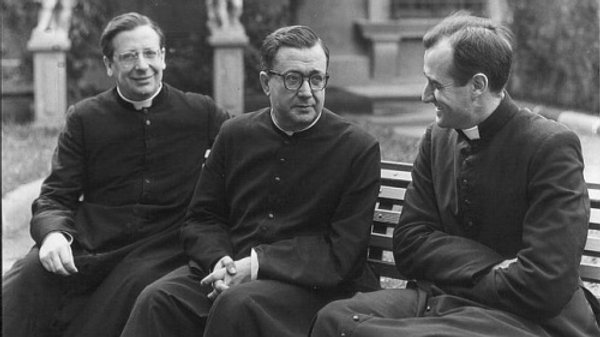
St. Josemaria (1902-1975) was a man totally dedicated to the service of the Church according to the charism that he received to found Opus Dei and to overcome all obstacles in doing so.
Probably this was why, referring to his love for the Church, he used to say that his goal was “to serve the Church as the Church wants to be served”, not—I would add—as the limitations of an inappropriate canonical frame would impose or as the opinion of any member of the clergy would prefer.
In fact, it was only in 1982 and 1983—more than 10 years after the passing away of its founder—that St. John Paul II granted Opus Dei the status of Personal Prelature. Until then there was no framework in the legal structure of the Church that would allow Opus Dei to grow and work in her service with full faithfulness to the light received by the founder in 1928.
St. Josemaria was magnanimous, especially in everything related to divine worship, but also in how he lived friendship and hospitality.
I remember that the first time I heard the name “Château Neuf du Pape” (the renowned brand of French wine) was on the occasion of Christmas gifts he was sending to some friends in the Vatican Curia, at a time when we were financially strained, due especially to the expense of building Villa Tevere, the headquarters of Opus Dei in Rome; we walked to our classes in the different Pontifical Universities where we were studying, as we had no money for public transit.
The smokers—and there were many in the 1950s, when knowledge of the harmful effects of tobacco had not yet reached the general public—could not smoke more than two or three cigarettes a day.
The menus of our meals were not very diversified, because the main staples were set thanks to the merciful offices of the Vatican’s Caritas (flour, biscuits I used to call “shipwreck biscuits” because of their hardness, and cheddar cheese).
His artistic good taste was outstanding. His literary style was very good. I acknowledge with deep gratitude that the greatest source of my education in these fields were his influence and example.
His heart—at once maternal and paternal—and his immense love for God enriched him with leadership and energy, yes, but also with a tremendous warmth and humanity.
When I first arrived in the Eternal City, he somehow found out that my father wasn’t entirely pleased with my decision to study in Rome for a few years. St. Josemaría told me that my father was right “from his point of view”; he urged me to write home often, always addressing the envelope to my father, even if he might not reply; and to pray and to be confident that things would change.
His intuition was correct, and eventually my father became a Cooperator of Opus Dei.
When I was ordained to the priesthood in 1956, my dad donated a beautiful chalice that Blessed Alvaro del Portillo (1914–1994) used to celebrate Mass for several years.
This article is part of a series of articles by Fr. Soria. The other articles are available below:
My memories of Saint Josemaria (I)
My memories of Saint Josemaria (II)
My memories of Saint Josemaria (III) - The First Time I Heard His Voice
My memories of Saint Josemaria (IV): A Full Portrait
The text above first appeared in The Westbrook Voice.
